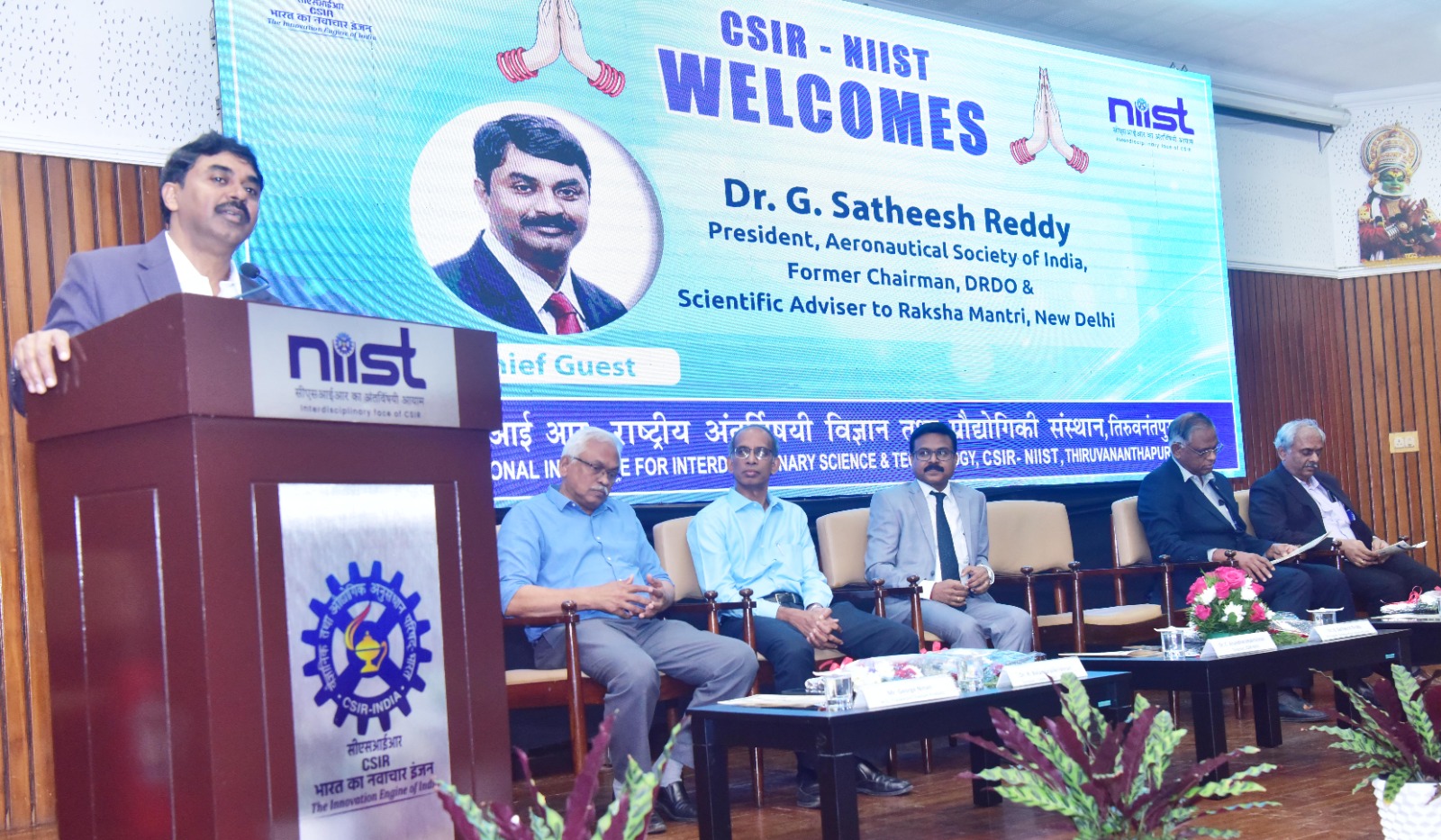Self-reliance in strategic materials vital to secure Atmanirbharta, says Former Scientific Advisor to Defence Minister
Dr G Satheesh Reddy inaugurates CSIR-NIIST industry connect meet
Trivandrum / February 2, 2024
Thiruvananthapuram, Feb. 02: Achieving self-reliance in strategic materials along with their manufacturing capabilities is vital to secure the goal of Atmanirbharta in defence production, said Dr G Satheesh Reddy, Former Scientific Advisor to Defence Minister, today.
Dr Reddy, also the President of Aeronautical Society of India, was speaking at the inauguration of the Industry Connect meet on ‘Strategic Materials and Manufacturing Technologies,’ organised by CSIR-National Institute for Interdisciplinary Science and Technology (CSIR-NIIST)on its campus at Pappanamcode here.
Dr C Anandharamakrishnan, Director, CSIR-NIIST, Thiruvananthapuram, presided over the function.
“The important aspect is to develop and produce strategic materials, which are part of our critical equipment systems, within the country. Availability of natural resources is the key factor but the nation has to find alternatives in the event of their shortage,” Dr Reddy noted.
According to him, linkage of R&D laboratories and industry is very important and laboratories should know how to manufacture industrially and commercially viable products.
Dr Reddy, who is the Former Chairman, Defence Research and Development Organisation (DRDO), said it is also important to ensure quality of products and the technology used for production.
“In the last 15 years, the country has worked a lot on many of the required materials in various laboratories. Studies have been conducted on availability of minerals including in the West coast but still we are dependent on many things from outside,” he said.
Calling for a focused approach on smart materials, Dr Reddy said unlike other technologies that are getting updated every day, generally, the material development cycle is about 15-20 years and we should look at how these cycles can be improved.
Commenting on around 1,14,260 startups in the country, he said the mindset of youngsters is globally competitive and academic institutions in materials should be leveraged as well as students needed to be encouraged.
An MoU between CSIR-NIIST and M/s Saarloha Advanced Material Pvt Ltd. was exchanged on the occasion. It pertains for developing advanced ceramics/materials, CO2 capturing materials, extraction of synthetic rutile from Ilmenite, recovering critical metals from industrial waste and E-waste and Rare earth metal extraction.
In his presidential address, Dr Anandharamakrishnan said earlier, the country was looking to imported materials for Defence systems, now the country is making all efforts to manufacture them in India itself, and exporting them.
“This was possible due to the skilled manpower we generated in the country and the advances in research in Defence sector. NIIST has signed an MoU with HAL for Magnesium-Aluminium composite material and two projects are currently going on as per the tie-up,” he said.
Dr Anandharamakrishnan added that NIIST is keen to support the Defence sector in whichever manner it needed and is looking for more collaboration with DRDO.
In his address, Dr R Balamuralikrishnan, Director, DMRL, DRDO, Hyderabad, said academic institutions have a role to play in improving the quality and documentation process of minerals.
Shri Antony Joseph, MD, BrahMos Aerospace, Thiruvananthapuram; Shri V N Anil Kumar, GM, HAL (Foundry & Forge Division), Bengaluru; Shri George Ninan, MD, Travancore Titanium Products Ltd.; Dr T P D Rajan, Sr. Principal Scientist & Coordinator, Industry Connect, CSIR-NIIST; Dr P Nishy, Head, BDD, CSIR-NIIST; and Dr S Ananthakumar, Head, MSTD, CSIR-NIIST, also spoke. Panel discussions on strategic materials and advances manufacturing technologies were also held as part of the event.
Thiruvananthapuram-based National Institute for Interdisciplinary Science and Technology (NIIST) is a constituent laboratory of Council of Scientific and Industrial Research and National Institute for Interdisciplinary Science (CSIR).
Ends
Photo Gallery

